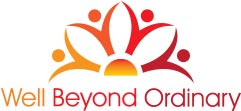 Remember that childhood tantrum where you scrunched down, knees to chin, fingers in your ears singing out loudly, “La, La, La…I’m not listening?!” I do. And on several recent occasions, I wanted to sink to the ground and do just that.
Remember that childhood tantrum where you scrunched down, knees to chin, fingers in your ears singing out loudly, “La, La, La…I’m not listening?!” I do. And on several recent occasions, I wanted to sink to the ground and do just that.
Endless whining and complaining threatens to send me there…you know the kind ~ same issue over and over and no action or follow through to change it. Gossip. Gossiping sends me running as fast as I can from the room. I have neither the time nor the patience for it. But the one that makes me bristle the most is when others start telling me they know what is best for me or how I will experience something. You don’t know…you DO NOT KNOW!
When Gary was first diagnosed, he asked me to do most of the initial research into symptoms of Hodgkin’s and side effects of chemo. He wanted one of us to be aware but he didn’t want to anticipate something that may never come to pass. Not everyone loses their hair. Not everyone experiences nausea. Not everyone dies from cancer.
He wanted to be open to the best possibilities…that he would sail through treatment with little or no impact, that he would go into remission and that he would live a full life. With all the other challenges that come with being diagnosed, particularly when you’re only 34, who wouldn’t want to shoot for the best possible outcomes and avoid being told what might come to pass?
Caregivers can play a vital role in creating the boundary between understanding the potential realities and what the survivor wants to know that will support their greatest hope for healing. Some cancer survivors want to know it all…the best and the worst case scenario. That’s completely cool. It is a conversation that needs to occur between those diagnosed and the people populating their support system. If a healthy dose of denial and oblivion is what they want, then honor this. If they want to be aware of every detail, statistic and possibility, then their medical team and loved ones need to respect this choice.
As a caregiver, my life was significantly impacted by my husband’s cancer. I had to learn to set my own boundaries as to what I could and couldn’t handle. I had to learn when I needed to ask for help and support. But, in the end, it was his journey that I was joining him on. Though you can barely separate those two roads, there is still a difference between those who are diagnosed and those who are the caregivers and family members.
Along the way, mostly out of good intentions and sometimes out of fear, others tried to tell him and us at times what we should and shouldn’t be doing. And sometimes, we had to put our fingers in our ears and shout out….La-La-La….I’m NOT listening.
Now, in my work as a cancer survivorship and caregiver coach, listening is what I do most often. I create a space where my clients get clear about their fears, needs, what’s working and what’s not working. Within this space, they generate their own awareness. They choose their goals, uncover their passions and decide their what’s next. They discover their core values and often redefine them as a result of their diagnosis. They learn to let go of whatever they feel they may have lost and discover new strengths, gifts and abilities. They do this…not me.
I do not dare to tell them what they can and cannot do, who they can and cannot be. I merely see them for their greatest potential and believe in them until they can do this for themselves…until they are ready to soar on their own. And when someone tells ME what is hard, what I can or cannot do, instead of putting my fingers in my ears, I let them run across the keyboard and send out a message…How Dare You…How Dare I?! For more on this topic, check out my Your Tango post.

